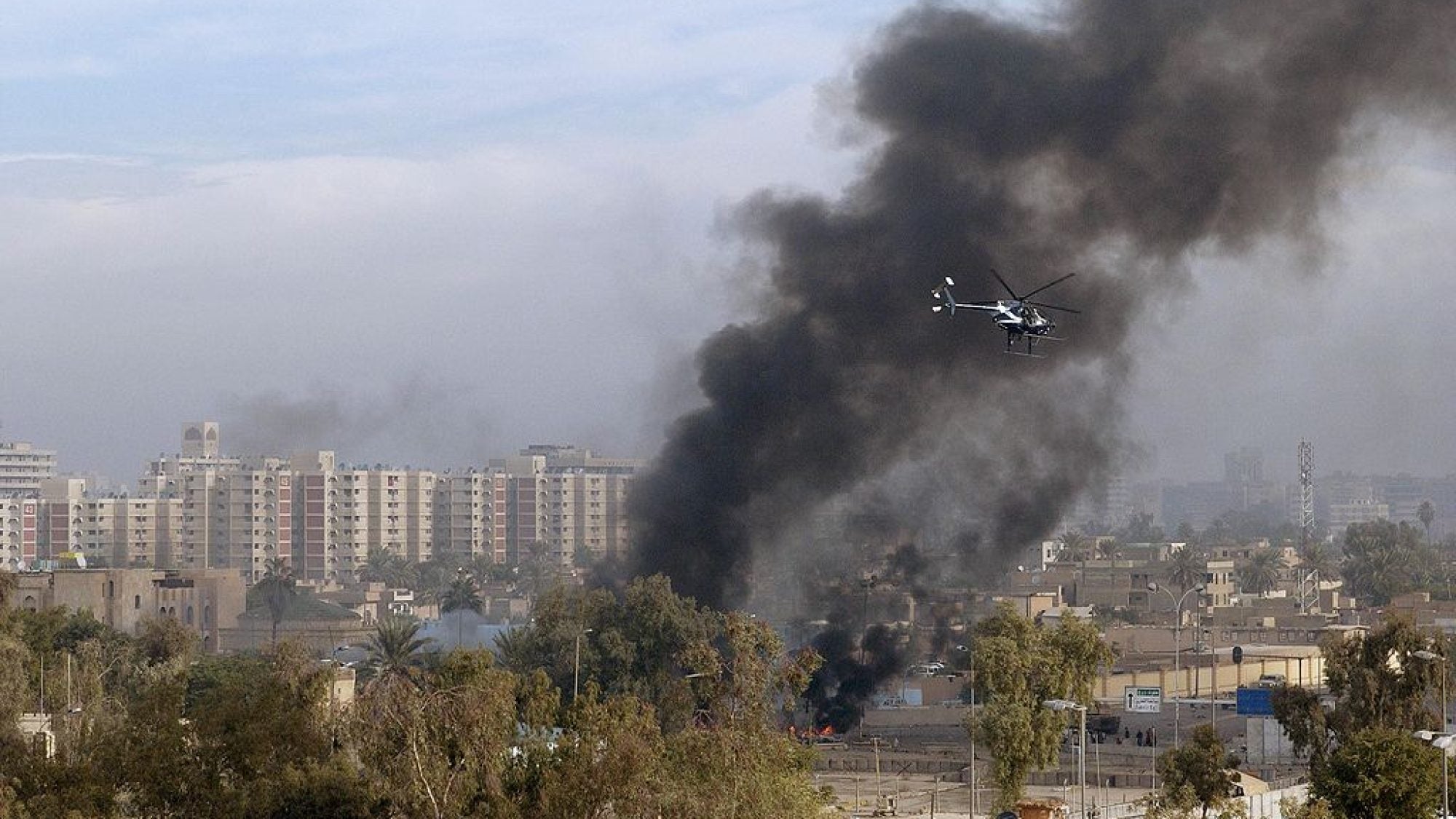
Title: It’s Time for an International Code of Conduct for Private Security Contractors
In September 2007, employees of Blackwater, a private security firm, killed 17 unarmed civilians and wounded dozens more in Nisour Square, Iraq while accompanying a State Department convoy. The incident provoked outrage and triggered UN, Iraqi, and U.S. executive and legislative branch investigations, but only limited accountability. As has become clear, there is no effective oversight or accountability over private security contractors (PSCs), at a time when their use by both governments and the private sector is rising rapidly.
For the past seven years my organization, Human Rights First, has been working on several fronts to address private security contractor abuses and impunity. We have advocated for passage of the Civilian Extraterritorial Jurisdiction Act, which would allow the Justice Department to prosecute government contractors and employees in US courts for certain serious crimes committed overseas. The Senate Judiciary Committee passed this bill last session; a House counterpart died in committee. We are urging the bills’ sponsors to reintroduce the measure and seek its prompt passage so that all PSCs are clearly held to account when enumerated offenses occur.
We have also engaged in a Swiss government-led initiative to establish a code of conduct (ICoC) and an international oversight mechanism for the industry, as well as provided support to the work of the UN Human Rights Council’s Mercenaries Working Group, which has drafted a proposed international convention on the use of PSCs. While no single initiative can address all of the questions and concerns raised by the use of private security contractors, the ICoC initiative holds promise for near term oversight and some progress in addressing the human rights impacts of contractor operations.
The International Code of Conduct project reached a key milestone in late February, with agreement on a charter to oversee and govern the requirements the ICoC makes of industry. Representatives of the U.S., the UK, Australia, China, France, Germany, and the Ukraine participated in the February 19-22 drafting conference, along with representatives from civil society organizations from the U.S., Europe and Iraq, and representatives from private security providers (PSPs) based in the U.S., the UK, and Africa, as well as Pakistan and Iraq.
The ICoC obliges companies to obtain certification that their policies and procedures are code-compliant, to undergo monitoring of their performance, and to establish effective complaints mechanisms. But translating these broad requirements into concrete, rights-respecting charter guidelines for the eventual Board to implement has proved extremely challenging. The charter seeks to balance civil society’s interests in creating an independent and credible oversight mechanism against industry’s concerns about cost, duplication and litigation risk and government sensitivity to national security and confidentiality concerns. In the view of Human Rights First, the charter provides a good balance of these interests and, provided the new Board implements the charter’s provisions faithfully, can achieve important progress in filling this governance gap.
One major question relates to the relationship between the mechanism’s certification that companies have code-compliant systems and policies and national standards-based certification efforts. The charter provides that the mechanism can take into account the results of national standards reviews, but also requires that companies provide any additional information necessary to address human rights and humanitarian-related concerns – such as rules on the use of force, training and vetting policies and procedures. Governments participating in the initiative can best encourage company participation by requiring or recommending, as a consideration in determining procurement eligibility, that companies obtain certification by the ICoC governance mechanism.
Another key question is related to the mechanism’s ability to assess company performance – implementation of ICoC requirements in the field. Civil society organizations have urged that the mechanism adopt procedures similar to other multistakeholder mechanisms, particularly the ability to do in-field reviews and to sanction companies for noncompliance. The charter gives the mechanism the authority to conduct in-field reviews to assess whether companies are faithfully implementing the ICoC’s requirements on the ground. Where companies are falling short, the mechanism is empowered to recommend corrective steps, and to sanction companies that fail to comply, with penalties that can include expulsion. This is an important point of leverage to encourage compliance with the code, to the extent that States and other potential users of PSPs require membership in the ICoC mechanism.
Companies participating in the ICoC and charter negotiations ultimately have realized that cooperating with this initiative, through reporting, independent field monitoring and complaints resolution would garner them increased legitimacy – and would create a more level playing field for the entire industry. They have also recognized that the ICoC initiative would provide them a safe space in which to tackle ongoing challenges collectively and with the benefit of expertise from other stakeholders, as well as valuable expertise from civil society groups and other stakeholders for identifying and managing human rights risk.
Time will tell whether this initiative lives up to its promise – but the charter has the right structure to succeed.
Image Credit: U.S. Air Force Photo by Master Sgt. Michael E. Best, Public domain, via Wikimedia Commons
This is an archived article. While every effort is made to conserve hyperlinks and information, GJIA’s archived content sources online content between 2011 – 2019 which may no longer be accessible or correct.